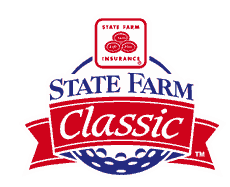|
|
|
TLPJ Urges Ill. High Court to Reject State Farm Position on Non-OEM PartsClass Action Litigation Reporter (Andrews)
Trial Lawyers for Public Justice has filed an amicus brief urging the Illinois Supreme Court to reject State Farm's appeal of a $1 billion judgment involving the use of non-OEM (original equipment manufacturer) parts in car repairs. The class action involves nearly 5 million policyholders across the United States. Avery et al. v. State Farm Mutual Automobile Insurance Co., No. 91494, amicus brief filed (Ill., 12/5/2002) The state high court granted review in the case Oct. 2, 2002. The plaintiffs' brief is due before the end of January. In Count I of the complaint, filed in Williamson County Circuit Court, the plaintiffs alleged that State Farm made identical contractual promises to policyholders nationwide: in exchange for premiums, State Farm would pay for replacement parts of "like kind and quality" to restore damaged vehicles to their "pre-loss condition." The plaintiffs said State Farm breached this promise by uniformly specifying non-OEM parts when they were available and cheaper than original parts made by the automobile manufacturer. Counts II and III alleged violations of the Illinois Consumer Fraud and Deceptive Business Practices Act. The plaintiffs said State Farm had a nationwide claims practice of uniformly specifying cheaper non-OEM crash parts on damage estimates, despite knowing those parts were inferior and would not return the vehicle to its pre-loss condition. The plaintiffs claimed State Farm deceived its policyholders by failing to inform them of the inferior quality of the specified replacement parts. They said State Farm was able to succeed in this deception by representing that the inferior parts met high performance criteria and by offering a bogus guarantee to replace unsatisfactory non-OEM parts at no cost to the policyholder. The jury returned a verdict of $456 million against State Farm. The court added $130 million in disgorgement damages and $600 million in punitive damages. The Illinois Appellate Court, 5th District, struck the disgorgement damages but affirmed the remainder of the judgment. "This is a case of extraordinary importance," State Farm maintains. "The $1 billion plus judgment in this 48-state class action, affirmed by the 5th District Appellate Court, is the largest judgment ever rendered in the state of Illinois. It included an unprecedented $600 million punitive damages award that would punish State Farm for engaging in a fully disclosed business practice that has been specifically endorsed by insurance regulators and consumer advocates throughout the country." State Farm says the judgment infringes on the considered policy choices of other states, and will have a profound adverse effect on consumers throughout the United States if not reversed. The insurance company says the application of Illinois law to consumers around the country conflicts with the decision of the Illinois Appellate Court, 4th District, in Oliveira v. Amoco Oil Co., 311 Ill. App. 3d 886, 726 N.E.2d 51 (Ill. App. Ct. 4th Dist.), appeal granted, 189 Ill. 2d 690, 734 N.E.2d 895 (Ill. 2000), and also with Illinois choice-of-law rules and the constitutional prerogative of other states to regulate insurance transactions within their borders. State Farm contends that the appeals court erred in affirming the certification of a class of approximately 4.75 million policyholders across the United States, who over a 10-year period had any of 33,000 distinct kinds of non-OEM parts specified on their State Farm repair estimates. The appeals court should not have approved the constitutionally inadequate notice to the class, the insurer argues, nor held that the class-action trial comported with Illinois law and constitutional due process. The organization argues, "State Farm would have this court abandon an elemental and longstanding rule of class action law: when a defendant based in a state commits wrongful acts in that state that harm persons in other states, it is entirely appropriate for the law of the state to be applied to the claims of all wronged persons in the nation." Over a period of several decades, TLPJ contends, a large number of state and federal trial and appellate courts have agreed with the principle that a state may apply its own law to the claims of non-residents when a resident corporation violates that state's laws. "Far from representing some great break with principles of federalism, the decision to permit non-Illinois residents to obtain relief for misconduct taking place in Illinois is entirely a common-place scenario," the amicus brief states. The TLPJ brief was submitted by F. Paul Bland Jr. of Trial Lawyers for Public Justice in Washington, D.C., and by Dmitry Feofanov of Chicago Lemon Law in Dixon, Ill. State Farm is represented by Wayne W. Whalen of Skadden, Arps, Slate, Meagher & Flom in Chicago; Robert H. Shultz Jr. of Heyl, Royster, Voelker & Allen in Edwardsville, Ill.; Sheila L. Birnbaum of Skadden, Arps, Slate, Meagher & Flom in New York; Michele Odorizzi, Bradley J. Andreozzi and Allan Erbsen of Mayer, Brown & Platt in Chicago; William R. Quinlan of Quinlan & Crisham in Chicago; and Marci A. Eisenstein and Aphrodite Kokolis of Schiff, Harden & Waite in Chicago.
|
|


